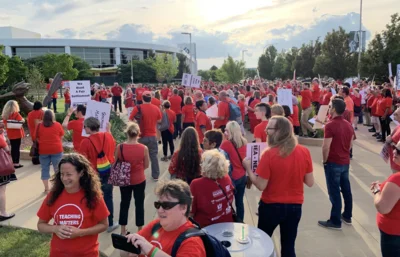Illinois State Rep. Amy Grant (R-Wheaton) | repgrant.com
Illinois State Rep. Amy Grant (R-Wheaton) | repgrant.com
Amy Grant (R-Wheaton) is opposed to Amendment 1 for several reasons, including their belief that it would make union bosses too powerful in Illinois.
Grant joined the Republican stance that the Amendment should be opposed because it would strengthen unions, give teachers the ability to strike and increase property taxes.
“I’m opposed,” Grant said in an interview with the DuPage Policy Journal. “I think if this state ever wants to become a right-to-work state in the future it won’t be able to if we pass this bill.”
She also joined the Republican chorus saying the Amendment would lead to unprecedented power by union bosses. “I think that’s true,” she said, “and public sector unions also bankroll candidates and that’s not fair or in the best interest of voters.”
Illinois voters will be asked during the Nov. 8 election whether Amendment 1 should be part of the state constitution. Amendment 1, according to Ballotpedia, would amend the Illinois Constitution to say that employees have a "fundamental right to organize and bargain collectively through representatives of their own choosing for the purpose of negotiating wages, hours and working conditions, and to protect their economic welfare and safety at work."
It would also prohibit any law that "interferes with, negates or diminishes the right of employees to organize and bargain collectively," including agreements that require union membership as a condition of employment.
Grant is leery of giving unions the permanent right to strike. “I don’t think teachers should have the ability to strike at all because who it hurts are the children,” Grant said. “I think we need to begin to look at the student and work with their priorities in mind. I think it’s unethical what these unions do in leaving children out of school during their disputes.”
The Amendment, Grant added, offers too much uncertainty, and carries the threat of increased property taxes. Opponents of the Amendment suggest property taxes would increase by $2,100 during the next four years and even more if union bosses “exercise new powers.” Opponents also fear special interest causes could exacerbate corruption in Illinois. “We don’t know what these unions will do,” Grant said. “So much of it is just so unfair to taxpayers and it’s dangerous to put something like this in the constitution.”






 Alerts Sign-up
Alerts Sign-up